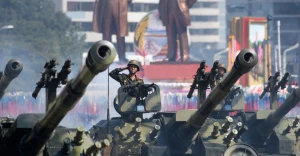
IAEA fails to protect Ukrainian NPPs from Russian missile attacks — Greenpeace
The International Atomic Energy Agency (IAEA) is failing in its role to urgently protect Ukrainian nuclear power plants from Russian missile attacks
This statement was issued by Greenpeace Central and Eastern Europe in response to the large-scale missile attacks on Ukraine's electricity system on the morning of November 28.
The organization recalled that back in September, IAEA Director General Rafael Grossi agreed with Ukrainian President Volodymyr Zelenskyy to expand the IAEA's inspection mission to include power substations that had been targeted by Russian attacks.
“Three months have passed since the IAEA agreed to develop a plan and deploy its inspectors to protect Ukraine’s electricity system. This has so far resulted in a total of six days of inspection, the last one occurring in October. Since then Russia has launched two massive strikes, deliberately targeting Ukraine’s electric grid and threatening the safety of its nuclear plants,” the organization said.
Following the Russian missile attacks on November 17, Grossi assured Ukraine's Energy Minister that the agency is ‘ready to organize relevant missions in the near future’.
“The IAEA is fully aware of the risks, yet has so far chosen not to act. The future Grossi refers to is happening now, and it is a true emergency in which every day, every hour counts. Words from the IAEA do not protect Ukraine’s nuclear plants against Russian missile attack. Where are the IAEA plans for permanent, comprehensive protection at substations, which are essential to prevent grid collapse and a nuclear disaster in Europe?” said Shaun Burnie, a nuclear specialist with Greenpeace Ukraine in Kyiv.
- After the Russian attack on November 17, Greenpeace nuclear experts noted that Ukrainian NPPs are under high threat and called on the IAEA to act more decisively to avoid a potential nuclear disaster.
- On November 25, UN human rights experts called on Russia to stop its missile attacks on the Ukrainian energy system. They also stressed the absence of IAEA plans to send missions to critical substations and warned of the risks of a nuclear disaster that could potentially surpass the 2011 Fukushima Daiichi accident in Japan and the 1986 Chornobyl disaster in Ukraine.
- News













































